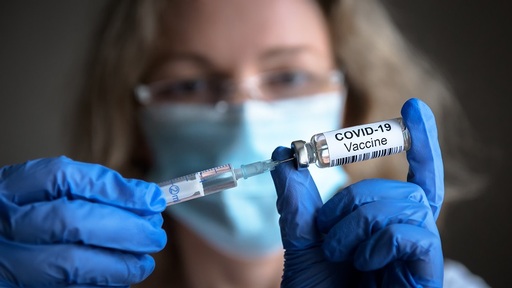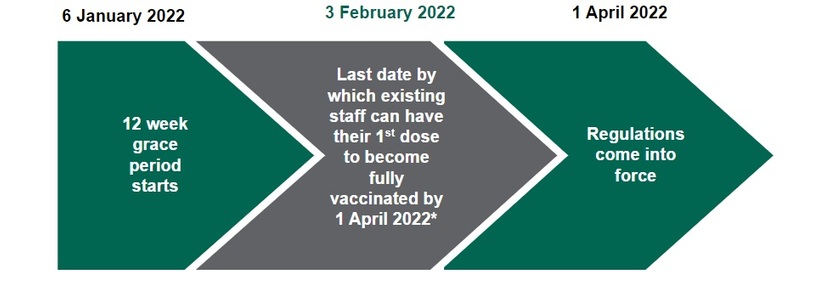Home care workers must have first Covid jab by 3 February to keep their jobs
Unvaccinated home care workers, who are not medically exempt, are required to have their first dose of a Covid vaccine by 3 February, in order to keep their jobs and comply with the government's vaccination rules coming into force on 1 April.

According to vaccine guidance from the Department of Health and Social Care (published on 20 January) home care providers must ensure that from 1 April, they only employ or engage people to provide direct, face to face CQC-regulated activity, if they have provided evidence of meeting the government’s jab requirements.
The 3 February deadline for a first vaccine dose, assumes an eight-week interval between first and second doses. A 12-week grace period began on 6 January, giving staff the time to be vaccinated before the regulations come into force.
The guidance applies to anyone working as employees, contractors, agency workers, students, or volunteers, or any other type of worker, who is giving direct, face to face CQC-regulated activity on behalf of a registered home care provider.
Since individuals must be employed or engaged by a CQC registered organisation, those who are not, e.g. hairdressers or personal assistants, may be excluded from the requirements.
For example, someone who employs a personal assistant (PA) to help them with activities like personal care, who is paid directly, with no other organisation/ individual commissioning them to give care, is not providing support on behalf of a CQC-registered provider, and as a result does not need to give proof of their vaccination to continue working as the someone's PA.

Jab rules exclude under 18s
Currently, the regulations do not require the home care providers to ensure their staff have provided evidence of having received a booster dose of COVID-19 vaccine. The Department of Health and Social Care stated: ‘The government will review this regularly and update the regulations if required’.
New starters who start their employment with a home care provider during the grace period (after 6 January 2022 and before 1 April 2022) will be required to give evidence to the registered person that they have been vaccinated with one dose of an authorised vaccine by 1 April.
Registered persons do not need to check the vaccination or exemption status of anyone under the age of 18, according to the guidance.
The guidance (called 'Coronavirus (COVID-19) vaccination as a condition of deployment for the delivery of CQC-regulated activities in wider adult social care settings') warns that ‘the regulations may provide your employer with a fair reason for dismissal’ if home care workers are unable to provide evidence of COVID-19 vaccination or exemption status.
140,000 home care workers could leave jobs
Dr Jane Townson, the chief executive of the Homecare Association, which represents over 2,340 home care providers nationally, said: "The Homecare Association strongly supports vaccination of the homecare workforce and we lobbied hard, right from the beginning, to ensure it was as easy as possible for homecare workers to access vaccinations."
Dr Townson has warned: “Persuasion is likely to be more effective than compulsion in encouraging uptake among remaining care workers.”
As a result of the government’s mandatory vaccination regulations, the association believes up to a quarter the regulated homecare workforce (between 120,000 and 140,000 care workers) will be forced to leave their jobs and the care sector.
“The government has no contingency plan for dealing with a potential loss of regulated homecare for over 120,000 older and disabled people. Who will care for them? How will councils and the NHS cope with the fallout?"
Latest News
 29-Jul-24
Dementia Bus gives carehome.co.uk staff insight into life with dementia
29-Jul-24
Dementia Bus gives carehome.co.uk staff insight into life with dementia
 27-Jul-23
UK's top home care agencies in 2023 revealed
27-Jul-23
UK's top home care agencies in 2023 revealed
 30-Nov-22
A quarter of older people keep their falls secret from family
30-Nov-22
A quarter of older people keep their falls secret from family
 29-Nov-22
'Covid-19 has not gone away' say terminally ill
29-Nov-22
'Covid-19 has not gone away' say terminally ill
 28-Nov-22
IT consultant who received poor care opens 'compassionate' home care business
28-Nov-22
IT consultant who received poor care opens 'compassionate' home care business